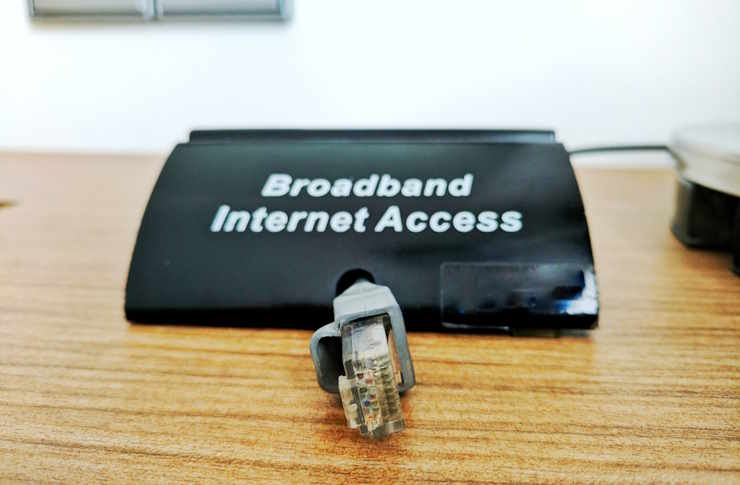Ways to save significantly on Internet costs
Rising internet costs can put a strain on household budgets, but there are numerous strategies to reduce your monthly broadband expenses without sacrificing quality. Understanding your options, from switching providers to negotiating better deals, can help you secure affordable internet access while maintaining the speeds you need for work, entertainment, and staying connected with family and friends.

How Can You Find the Best Internet Deals in Your Area?
The first step to saving money on internet costs is understanding what internet is available at my address. Different providers offer varying coverage areas, speeds, and pricing structures. Start by checking comparison websites like Ofcom’s broadband checker or independent comparison sites that show all available providers in your postcode.
Consider both established providers like BT, Sky, and Virgin Media, alongside newer entrants like Hyperoptic, Community Fibre, and regional providers. These smaller companies often offer competitive rates to attract customers from larger incumbents. Take time to read customer reviews and check coverage maps to ensure reliable service in your specific location.
What Are the Most Effective Ways to Negotiate Lower Rates?
Existing customers often pay more than new customers due to introductory offers ending. Contact your current provider’s retention department, not general customer service, as they have more authority to offer discounts. Be prepared to mention competitor offers and express genuine willingness to switch.
Timing matters when negotiating. Call near the end of your contract when you have the most leverage, or during slower sales periods like January when providers are more motivated to retain customers. Ask about loyalty discounts, social tariffs, or temporary promotional rates that might not be widely advertised.
Which Senior Internet Plans Offer the Best Value?
Many providers offer specialized senior internet plans with reduced rates and simplified packages. BT’s Basic package, designed for low-income households, provides essential broadband at significantly reduced rates. Sky offers social tariffs for eligible customers, while some providers have age-specific discounts for customers over 65.
These plans often include additional benefits like free technical support, simplified billing, and no lengthy contracts. Contact providers directly to inquire about availability, as these offers aren’t always prominently advertised online. Proof of age or benefit eligibility may be required.
How Does Bundling Services Affect Your Total Internet Costs?
Bundling internet with television or phone services can sometimes reduce overall costs, but it’s not always the cheapest option. Calculate the total cost of bundled services versus purchasing internet separately and using alternatives like Freeview for television or mobile phones for calls.
Consider your actual usage patterns. If you rarely watch television or make landline calls, paying for these services in a bundle wastes money. However, if you need multiple services, bundling can provide convenience and modest savings, especially during promotional periods.
What Hidden Costs Should You Watch For When Comparing Providers?
Setup fees, router charges, and early termination penalties can significantly impact your true internet costs. Some providers charge upfront installation fees ranging from £30 to £100, while others include this in monthly pricing. Router rental fees typically add £5 to £10 monthly, though many providers now include this cost.
Read contract terms carefully for price increase clauses. Many providers reserve the right to increase prices annually, sometimes by inflation rates plus additional percentages. Factor these potential increases into your long-term cost calculations when comparing seemingly similar offers.
Real-World Internet Provider Costs and Comparisons
The UK internet market offers diverse pricing options depending on speed requirements and provider choice. Finding the best high-speed internet in my area requires comparing both established and emerging providers across different speed tiers.
| Provider | Package | Speed | Monthly Cost (Est.) | Contract Length |
|---|---|---|---|---|
| BT | Fibre Essential | 36 Mbps | £28.99 | 24 months |
| Sky | Superfast | 59 Mbps | £27.00 | 18 months |
| Virgin Media | M50 Fibre | 54 Mbps | £28.00 | 18 months |
| Plusnet | Unlimited Fibre | 36 Mbps | £24.99 | 18 months |
| TalkTalk | Fast Broadband | 38 Mbps | £25.95 | 24 months |
| Hyperoptic | Fast | 50 Mbps | £22.00 | 12 months |
Prices, rates, or cost estimates mentioned in this article are based on the latest available information but may change over time. Independent research is advised before making financial decisions.
Smaller providers often offer competitive rates with shorter contracts, providing flexibility for future savings. Community Fibre and Hyperoptic frequently undercut larger providers in areas where they operate, while maintaining comparable or superior speeds.
What Long-Term Strategies Help Maintain Low Internet Costs?
Avoid automatic contract renewals by setting calendar reminders before your current deal expires. Providers typically increase prices significantly when promotional periods end, sometimes doubling monthly costs. Shopping around every 12 to 18 months ensures you’re always getting competitive rates.
Consider your changing needs when renewing contracts. If your usage patterns have shifted, you might need different speeds or data allowances. Sometimes downgrading to a slower but adequate package can provide substantial savings without noticeably impacting your internet experience.
Monitor your actual internet usage through your router’s admin panel or provider’s app. Many households pay for speeds far exceeding their needs. Basic streaming and web browsing function well on connections as low as 25 Mbps, while remote work typically requires 50 Mbps or less.
Saving significantly on internet costs requires active management and regular comparison shopping. By understanding your local options, negotiating effectively, and avoiding unnecessary features, you can maintain reliable internet access while keeping monthly expenses manageable. The key lies in treating internet service as a competitive market where switching providers and renegotiating terms regularly leads to ongoing savings.




